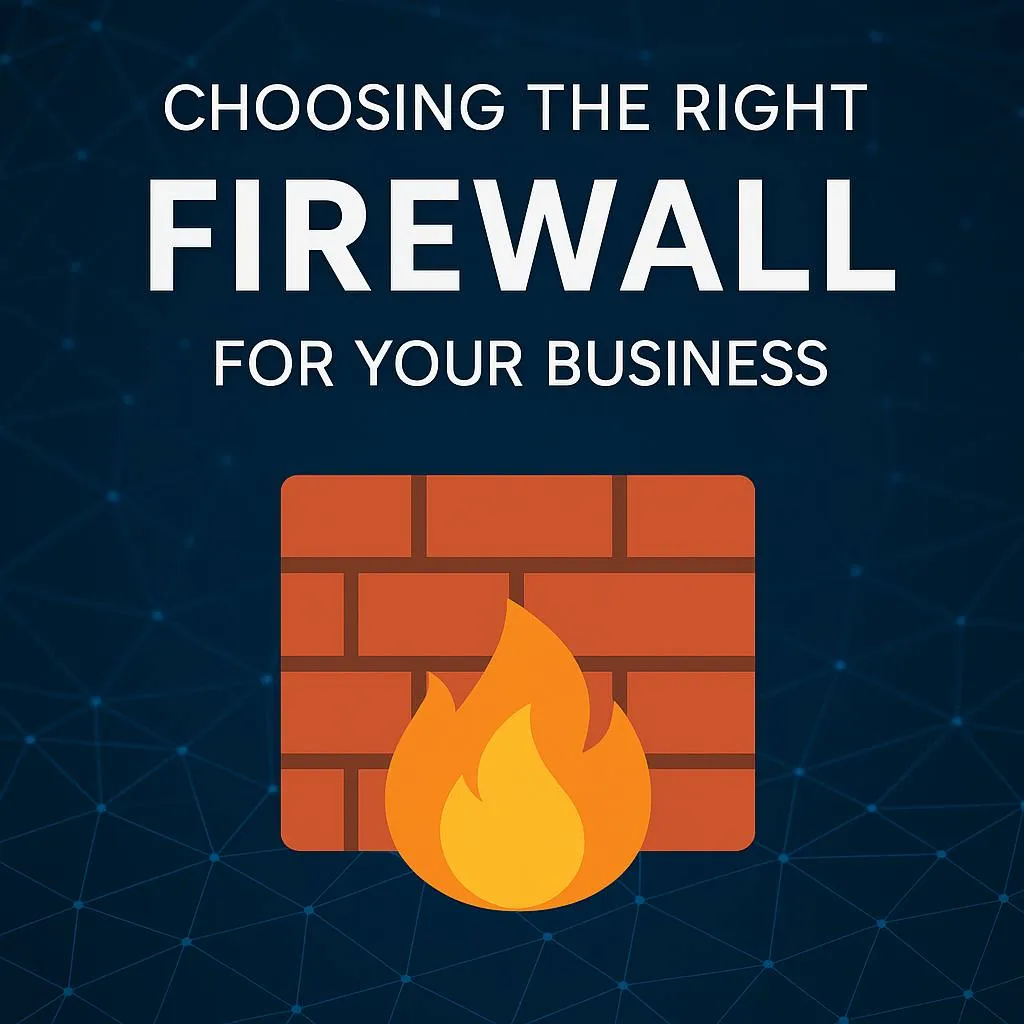In today’s digital landscape, cybersecurity is no longer a luxury — it’s a necessity. Whether you’re a small startup or an established enterprise, protecting your network is critical to maintaining business continuity, data integrity, and customer trust. One of the most important components of a robust security posture is your firewall.
But with countless options on the market, how do you choose the right firewall for your business? Let’s break it down.
What is a Firewall?
A firewall is a security device — either hardware, software, or both — that monitors and controls incoming and outgoing network traffic. Its primary purpose is to establish a barrier between your internal network and external threats such as hackers, malware, or unauthorized users.
Why Choosing the Right Firewall Matters
An improperly configured or outdated firewall can lead to:
• Security breaches
• Loss of sensitive data
• Network downtime
• Non-compliance with regulations
Choosing the right solution helps ensure that your network stays secure without compromising on performance or scalability.
Types of Firewalls
There are several types of firewalls available, each offering different levels of protection:
1. Packet-Filtering Firewalls
Basic filtering of data packets based on source/destination IP addresses and ports.
2. Stateful Inspection Firewalls
Tracks active connections and makes decisions based on traffic state and context.
3. Next-Generation Firewalls (NGFWs)
Combines traditional firewall features with advanced capabilities like intrusion prevention, deep packet inspection, and application-level control.
4. Cloud Firewalls (Firewall-as-a-Service)
Ideal for distributed environments and hybrid cloud architectures.
5. Proxy Firewalls
Filters traffic at the application layer and can hide internal users from the internet.
Key Factors to Consider
When choosing a firewall, consider the following:
1. Business Size and Network Complexity
A small office with a few endpoints will need a different solution than a mid-size business with multiple departments or remote teams.
2. Scalability
Choose a solution that can grow with your business. Look for modular or cloud-ready options.
3. Security Features
Advanced threats require advanced protection:
• Threat intelligence
• VPN support
• Intrusion Prevention System (IPS)
• URL filtering
• Malware sandboxing
4. Vendor Support and Integration
Ensure the firewall integrates with your existing infrastructure. Vendors like Fortinet, Palo Alto Networks, Cisco, and Sophos offer excellent enterprise-grade solutions with reliable support.
5. Ease of Management
A firewall should be easy to configure and monitor. Many firewalls offer centralized dashboards and automated policy updates.
6. Budget
Firewall pricing varies widely. While cost is a factor, don’t sacrifice security for savings. A cost-effective firewall is one that protects you from expensive breaches.
Recommended Vendors
At SMMHub LLC, we recommend and provide solutions from trusted vendors such as:
• Fortinet — Strong for mid to large enterprises, known for FortiGate NGFWs.
• Palo Alto Networks — Best-in-class for high-security, application-aware firewalls.
• Dell SonicWall — Good balance for SMBs needing reliable protection.
• Cisco — Ideal for enterprise-grade networks with strong tech support.
We help our clients choose, install, and maintain firewall systems tailored to their specific business goals.
Need Help Choosing?
At SMMHub LLC, we work with companies across Armenia to deliver tailored IT security solutions — from initial consultation to implementation and long-term support. If you’re unsure which firewall is right for your business, let our experts help.
Contact us today for a free consultation.




